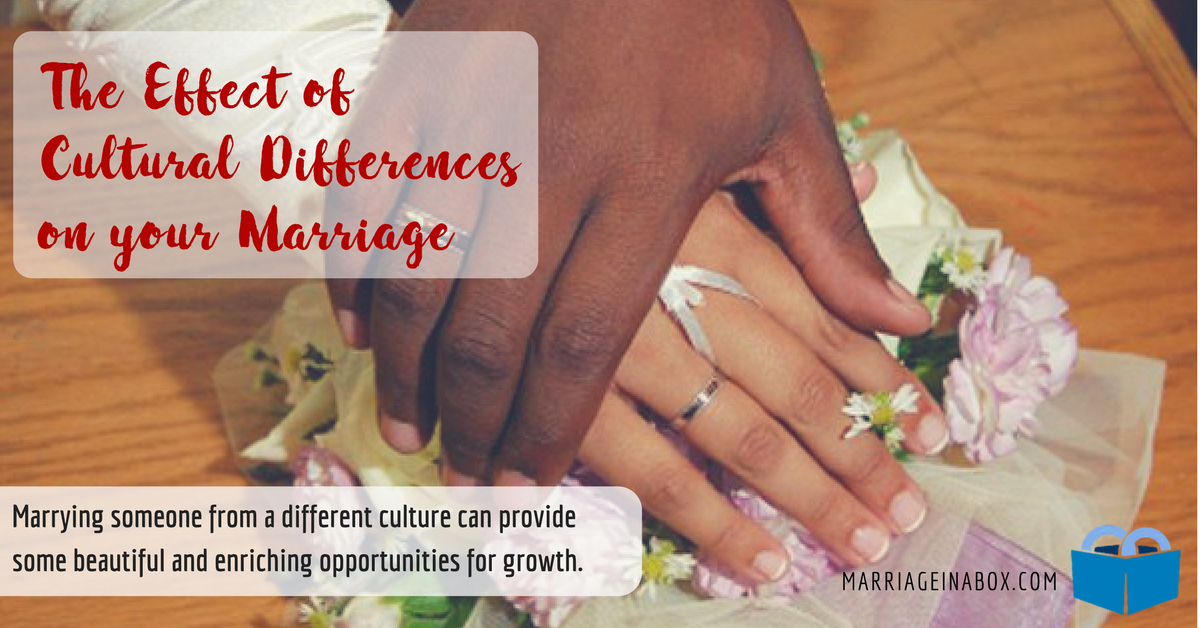The Effect of Cultural Differences on your Marriage
Posted on

America today has become a melting pot for different cultures and more people are marrying someone from a different religion or racial/ethnic group than in years past. The rate of interracial marriages increased by 28 percent in the last decade, according to the U.S. Census Bureau.
Marrying someone from a different culture can provide some beautiful and enriching opportunities for growth. However, when people of different cultural backgrounds fall in love and get married, certain cultural differences can pose a challenge to the marriage. Some of the more common cause of tension in such marriages are:
-
Issues with extended family/in-laws.
Many intercultural couples find that their families of origin are outspoken about disapproval and concern about protecting future generations, transmitting cultural values and traditions, and connecting with other generations in the family. Marriage outside of the race or culture can be seen as a disruption of a sense of community, cultural heritage, and identification.
Maintain a steady contact with your family, even if they resist at first. Most families come to terms with everything with the passage of time. What you need to do is have a level headed discussion with them, and not rushing them into accepting your marriage. Patience is the key here.
-
Language Barrier
For couples that have families who speak different languages, communication itself can be a challenge.
It is true that a lot of things get lost in translation, literally, so start by learning to say small phrases and then graduate to complex sentences. You don’t need elaborate language classes for that, your spouse will be more than happy to be the teacher!
-
Gender roles and expectations
In some cultures women are viewed as inferior to men or may even be considered property with few rights. Since your spouse has moved to America, they may have adopted many western views but marriage has a way of bringing to mind a person’s own family up bringing.
Don’t expect your spouse to assimilate into your culture overnight, and listen to their apprehensions with an open mind. Explain your customs and traditions in easy ways and don’t ask them to forget their own roots. Never alienate your spouse by insisting that they adopt your culture’s method of doing things. Instead focus on open communication and support them by listening to their point of view.
-
Different values, beliefs and traditions within the couple
Different customs and cultures teach different values and priorities. Normally, this means that interracial or multicultural couples have a unique need to bend, flex, compromise, and accommodate to one another's contrasting ways of looking at life. This is especially true if a husband and wife grew up in different parts of the world.
Discuss the positives and negatives of the two cultures and choose together which parts will best fit in your relationship. Talk with your mate about the possible weaknesses and strengths of your own culture. Decide which aspects of both cultures might enhance the household you're building.
-
Pressure to convert to or follow a particular religion
Issues of practicing your religious beliefs in the day to day, how you are going to raise your children and the family culture you choose to develop are all rooted in your religious beliefs or lack thereof.
Religion is a sensitive aspect to any culture. This aspect doesn’t usually pose any direct reason for disruption until a couple decides to have children. Remember that you married your spouse after fully knowing their religious orientation. Make your children understand the significance of their situation, and have a detailed discussion on what your children shall follow.
Intercultural marriages across ethnicities experience different levels of stress and resiliency. The complexities can potentially be overcome successfully with careful negotiation and communication.
Sign up for a free trial of the Marriage In A Box online tracking tool!